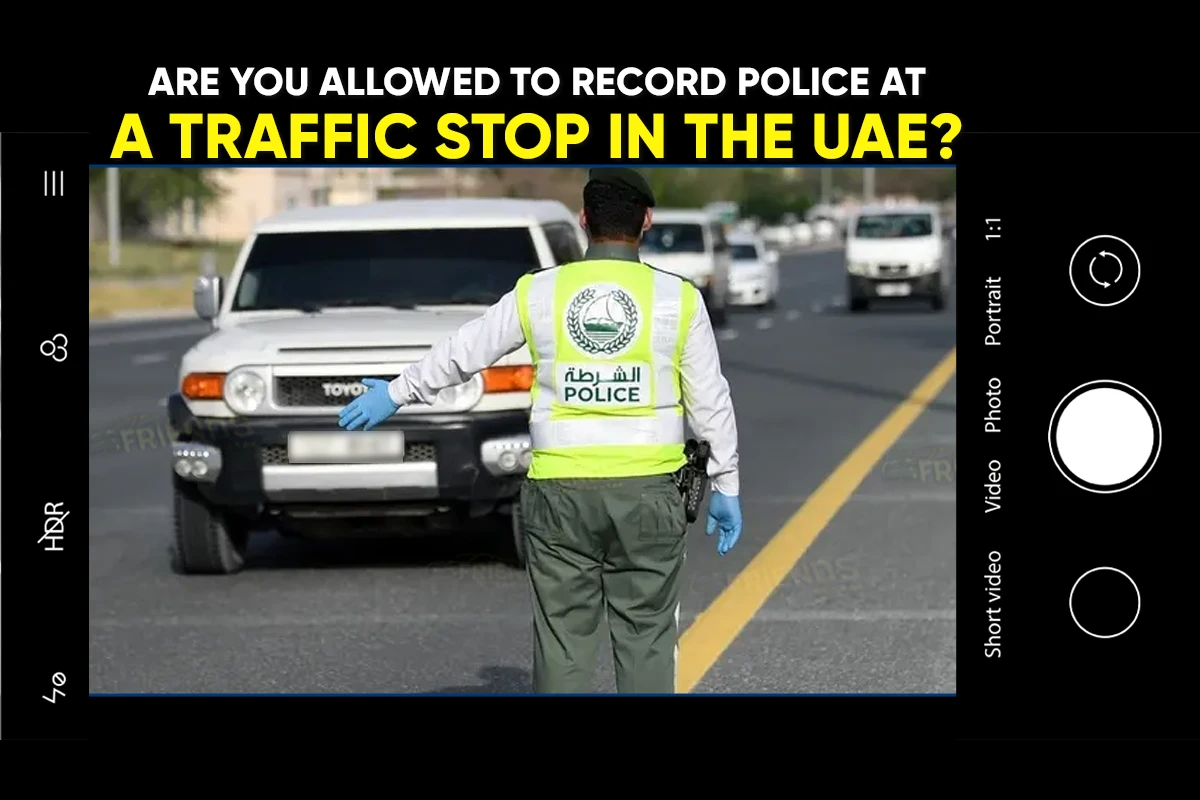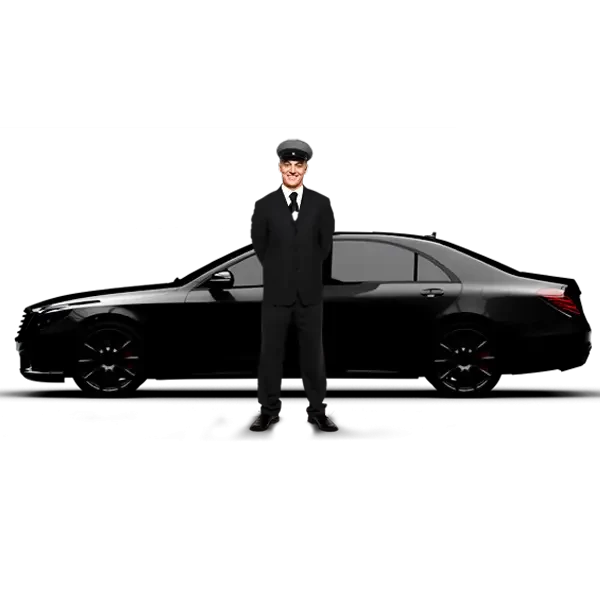Are You Allowed to Record Police at a Traffic Stop in the UAE?

Can someone record police at a traffic stop in the UAE? Most sources on the internet will say no—it’s illegal to record authorities in the Emirates. However, there are legal ways to record traffic stops, especially when you, yourself are involved. So, technically it’s not entirely illegal to record police during a traffic stop in the UAE.
You should understand the legal procedures, limitations, UAE privacy laws, and traffic stop rights in the UAE. That is exactly what this article delivers: clarity on legal traffic stop recording laws to avoid legal issues.
Are you allowed to record police at a traffic stop in the UAE?
Yes, you are allowed to record police at a traffic stop in the UAE, but only with a proper consent to avoid devastating legal consequences, like fines and even imprisonment.
Legal Framework Governing Recording in the UAE
The legal framework that governs any digital recording in the UAE stands on the Federal Decree-Law No. 31 of 2021 (UAE Penal Code) and Federal Decree-Law No. 34 of 2021 on Combating Rumours and Cybercrimes. Article 378 of the UAE Penal Code prohibits any unauthorized recording or transmission of conversations or images, which can include recordings of police during traffic stops. Similarly, Article 44 explicitly prohibits unauthorized recording or dissemination of conversations, images, or videos without consent, whether it’s police or public.
The UAE has strict penalties against such rule violators, with fines ranging from AED 150,000 to AED 500,000 and/or detention for a minimum of six months. If someone alters the recordings and misuses them for defamation, the penalty increases to detention for a minimum of one year and/or a fine of AED 250,000 to AED 500,000. However, the court has the final say on the actual amounts & detention periods.
Source: uaelegislation.gov.ae.
Exception for Evidence Submission
While the general misconception that recording UAE police during traffic stops is illegal, that is not quite the case. There appears to be a legal exception, especially for those directly involved in traffic stops. Clarifications from senior police officials, as reported in reputable UAE media, indicate that recordings of police officers during traffic stops are permissible if they are solely intended as evidence and submitted directly to the competent authorities, without any public dissemination.
Despite the general prohibitions under the UAE Penal Code (Federal Decree-Law No. 31 of 2021) and Federal Decree-Law No. 34 of 2021 (Cybercrimes Law) against unauthorized recording and dissemination of conversations and images, this guidance points to a rare yet recognized case for individuals at traffic stops to document interactions for legitimate evidentiary purposes. This footage can be legal and admissible as evidence to the authorities (e.g., via the Ministry of Interior’s e-Police app), provided its use adheres strictly to the stated purpose and is not for general or public recording.
Important Note: As this is a critical scenario with severe legal implications for non-compliance, I highly recommend you confirm this information with a legal UAE firm, credible lawyers, or a law practitioner to avoid inconveniences. We are not lawyers, and this is general information.
Practical Guidelines for Recording at a Traffic Stop
The legal framework clearly sets a strict outline for digital recording, as the penalization for violations can be extremely harsh. While it is a very narrow and specific scenario for a civilian to record police in the UAE, you need to follow these critical guidelines if you ever find yourself in a situation where such recording might be permissible as evidence:
Use for Evidence Only: You should make sure that any such recordings are only submitted to authorities. Never post them on your social media or share publicly. The consequences are truly devastating. Ensure to avoid cybercrime penalties at all costs.
Stay Respectful: Remain calm and cooperative during the stop to prevent escalation.
Legal Recourse & Official Channels: If you feel your rights were violated or believe there is a legitimate reason for documenting the interaction, consult a lawyer immediately for advice on proper legal recourse. All complaints and evidence must be filed through official channels.
Risks of Non-Compliance: Review
Let’s review the non-compliance risk of recording police during traffic stops in the UAE.
Legal Consequences: The unauthorized recording or public sharing of police or other (public) information is illegal, and penalties, including imprisonment and hefty fines, are imminent.
Social Media Risks: Posting such recordings online or publicly will lead to defamation charges under cybercrime laws.
Court Admissibility: Any unauthorized recordings are typically inadmissible in UAE courts.
Conclusion
While consensual recording of public or police officers during traffic stops in the UAE is possible, it's important to note that it is not guaranteed that you will get consent. It raises a serious question: What do you do if you feel your rights are being violated and obtaining explicit consent is not feasible? In general, any unconsented recording is not court-admissible and also illegal per the UAE Penal code, how do you prove your innocence?
Your word against the authorities may feel weak already. Asking an elite law practitioner in the UAE is the only way to get to the bottom of this dilemma. My recommendation: consulting with experienced legal professionals to gain clarity, understand your rights, and explore lawful avenues to protect your interests. This proactive step empowers you to navigate complex situations with confidence and proper guidance, ensuring you stay compliant and protect your well-being.
Written by: FriendsCarRental
Published at: Mon, Jul 14, 2025 11:26 AM
Leave a Reply
Your email address will not be published. Required fields are marked *
Car Rental in Dubai
AED 2500
DAY
AED 0
MONTH
-
 SUV
SUV -
 4 Doors
4 Doors -
 5 Seats
5 Seats
- 1 Day Rental Available
- Deposit: Not Required
- Insurance Included
AED 5500
DAY
AED 0
MONTH
-
 Sports
Sports -
 2 Doors
2 Doors -
 2 Seats
2 Seats
- 1 Day Rental Available
- Deposit: Not Required
- Insurance Included
AED 1200
DAY
AED 0
MONTH
-
 SUV
SUV -
 4 Doors
4 Doors -
 5 Seats
5 Seats
- 1 Day Rental Available
- Deposit: Not Required
- Insurance Included
AED 1600
DAY
AED 0
MONTH
-
 SUV
SUV -
 4 Doors
4 Doors -
 5 Seats
5 Seats
- 1 Day Rental Available
- Deposit: Not Required
- Insurance Included
AED 1500
DAY
AED 28500
MONTH
-
 SUV
SUV -
 4 Doors
4 Doors -
 5 Seats
5 Seats
- 1 Day Rental Available
- Deposit: Not Required
- Insurance Included

 عربي
عربي
 English
English
 Français
Français
 Русский
Русский
 中国人
中国人
 Nederlands
Nederlands
 Española
Española
 Türkçe
Türkçe
 Italiana
Italiana














































